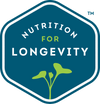Dress in Blue Day
Did you know 1 in 24 people will be diagnosed with colon cancer this year?¹ If you were born in the 1990s or later, your risk of developing colon cancer increases 2x and for rectal cancer it’s 4x.¹ It’s estimated that 149,500 people will be diagnosed in 2021 with colorectal cancers (CRC) and of those an estimated 52,980 deaths will occur.² Sometimes, there are no symptoms at all for either of these cancers and that’s why we’re bringing awareness to a silent, deadly killer here in the US.
The statistics may simply look like numbers to some, but once someone close to you has a diagnosis it’s not just a number anymore; it's your dad, sister, partner, teammate or coworker. As you continue reading the information here, remember that with on-time screening and routine evaluation, CRC is preventable, treatable and beatable!³

So what is Dress in Blue Day? Dress in Blue Day is intended to bring awareness to colorectal cancer and what preventative actions you can take. It’s a national day of awareness that lets allies everywhere support those impacted by CRC, support prevention, and decrease the prevalence of new cases. Dress in Blue Day occurs on the first Friday in March. This year it will be honored on Friday, March 5th. Throw on your favorite blue t-shirt, blue baseball cap, dawn a blue ribbon on your jacket, or lace up your favorite blue suede shoes this Friday in support. This year, Dress in Blue Day is especially important. Since the onset of COVID-19, colorectal screenings have decreased nearly 90% from 2019.¹ This year’s Dress in Blue Day is imperative in getting these screenings back on track.
So, how can you protect yourself? The first step you can do is sign a pledge, committing that you will speak to your healthcare provider about routine screenings. Screening is one of the most reliable ways to diagnose CRC. With screenings, doctors are able to detect atypical cells and polyps before they become cancerous. One of the reasons CRC is so dangerous is because the initial stages often show no symptoms. When should you be screened? Check out the risk factors below and as always, have a conversation with your health care provider.
Fixed risk factors:
- Men and woman 45 years old (formerly 50 years old)
- Those with familial history of CRC should begin screening in their 20’s
- Those with ulcerative colitis, inflammatory bowel disease, or Crohn’s Disease should talk with their health care provider regarding screening concerns
Modifiable risk factors:
- Overweight / Obesity
- History of Smoking
- History of Excessive Drinking
- Type 2 Diabetes Diagnosis
- Sedentary Lifestyle
- Diet High in Processed Meats
- Diet Low in Fiber
While the statistics on CRC are daunting, cases of CRC have improved due to improved lifestyle and the enhancements in screening. In fact, in older adults, from 2013–2017 rates have dropped about 1% each year! Comparatively, from 2012-2016 rates increased every year by increased 1% in those 50–64 years of age. In those under 50, rates increased by nearly 2% between 2012–2016.³

One of the biggest contributors to the decrease in cases: prevention. Modifiable risk factors are driven by lifestyle choices and can be improved by making small, but meaningful changes to your daily life. Diet is among one of the largest risk factors, and one that can be easily modified.
Here at Nutrition for Longevity (N4L), we make it as easy as possible to choose foods that help preventable diseases, such as CRC. A day’s worth of N4L nutrient-dense meals on our meal plan always include at least 25 grams of fiber. Many studies have shown that diets high in fiber-containing foods are associated with a reduced risk of some types of cancer.⁴ Studies in various parts of the world indicate that populations who regularly consume a diet high in plant foods may have lower risks of some cancers.³ Current dietary guidelines recommend five or more servings of fruits and vegetables which, is easily achieved with our guaranteed six servings of fruits and vegetables per day.

Nutrition for Longevity is more than meal plans. We truly believe in curating food that is medicine. We follow the Pillars of Longevity that help achieve balance in life backed by three decades of science and research. Through our Lifestyle Programs, we encourage daily physical activity along with other healthy habits to encourage an improved lifestyle with reduction in risk factors that can lead to chronic disease.
Where to begin? Get screened and make improvements to your diet and lifestyle. Check on your loved ones and make sure they’re prioritizing their health. Follow a plant-based diet, consume more fruits and vegetables, and eat a high fiber diet* — and try signing up for one of our custom meal plans. CRC is preventable, treatable and beatable when detected early enough. Let’s all be allies this Friday. Join Nutrition for Longevity and bring awareness by wearing blue.
*Always check with your healthcare provider before making any sudden changes to your diet. The information is not intended as medical advice. Please consult a medical professional for individual advice.
References:
1. Get facts about colon cancer. Colon Cancer Coalition website. https://coloncancercoalition.org/get-educated/what-you-need-to-know/colon-cancerfacts/#:~:text=People%20born%20after%201990%20have,or%2018%2C000%20for%20the%20year. Accessed March 2, 2021.
2. Dress in blue day 2021. Colon Cancer Alliance website. https://www.ccalliance.org/about/awareness-month/dress-in-blue-day. Accessed March 2, 2021
3. Colorectal cancer statistics. American Cancer Society website. https://www.cancer.org/cancer/colon-rectal-cancer/about/key-statistics.html. Updated January 12, 2021. Accessed March 2, 2021.
4. Electronic code of federal regulations. Code of Federal Regulations website. https://www.ecfr.gov/cgibin/teSID=c7e427855f12554dbc292b4c8a7545a0&mc=true&node=pt21.2.101&rgn=div5#se21.2.101_176. Updated February 26, 2021. Accessed March 2, 2021.




